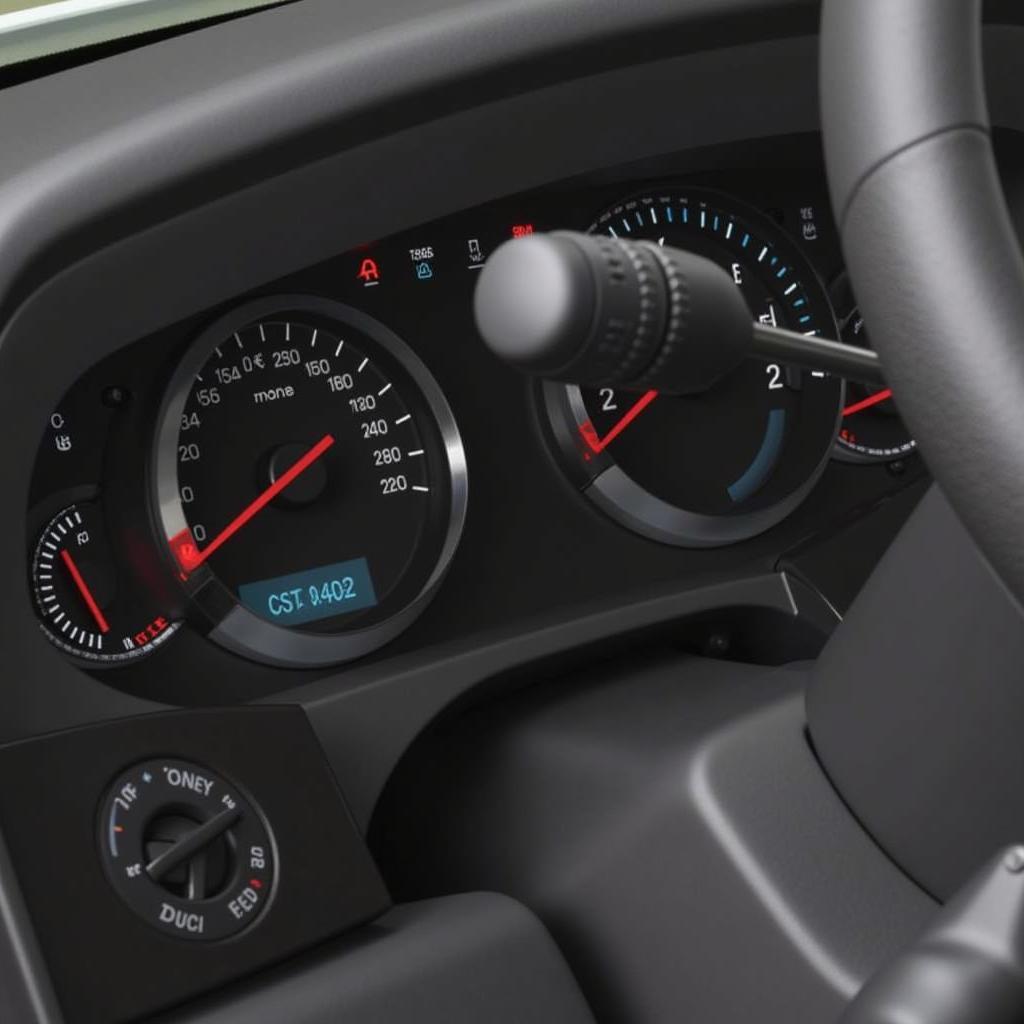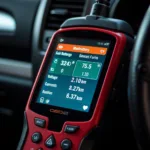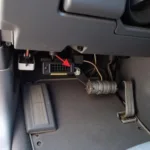A Chevrolet OBD2 scanner is an essential tool for any Chevrolet owner. Whether you’re a seasoned mechanic or a DIY enthusiast, an OBD2 scanner can help you diagnose and troubleshoot car problems, saving you time and money on costly repairs. This comprehensive guide will cover everything you need from understanding the basics of OBD2 scanners to choosing the right one for your Chevrolet.
Understanding OBD2 Scanners and Their Importance for Your Chevrolet
OBD2 stands for On-Board Diagnostics, generation 2. It’s a standardized system that allows your Chevrolet’s computer to communicate with a scanner, providing valuable data about your vehicle’s health. This data can help you:
- Identify the “Check Engine” light: Decipher those cryptic codes illuminating your dashboard and understand the severity of the issue.
- Diagnose problems before they escalate: Early detection through regular scans can prevent minor issues from becoming major headaches.
- Monitor engine performance: Keep tabs on your Chevrolet’s vital signs like fuel efficiency, emissions, and sensor readings.
- Reset maintenance reminders: Easily reset your oil light or other service reminders after completing routine maintenance.
- Save money on repairs: By understanding the issue beforehand, you can avoid unnecessary trips to the mechanic and potentially tackle some fixes yourself.
Types of OBD2 Scanners for Chevrolet Vehicles
Navigating the world of OBD2 scanners can feel overwhelming with the array of options available. Let’s simplify it:
- Basic OBD2 Scanners: These entry-level scanners read and clear basic engine codes, ideal for DIYers looking to understand their “Check Engine” light.
- Mid-Range OBD2 Scanners: Offering more advanced features like live data streaming, freeze frame data (snapshot of the moment a fault occurred), and some manufacturer-specific codes, these are suitable for more experienced users.
- Professional OBD2 Scanners: Packed with comprehensive functionalities, including bi-directional control (sending commands to your Chevrolet’s modules for testing) and access to all modules (engine, transmission, ABS, airbags, etc.), these are preferred by professional mechanics.
Choosing the Right Chevrolet OBD2 Scanner for You
Selecting the perfect OBD2 scanner depends on your needs and technical expertise. Consider these factors:
- Your Budget: Prices range from affordable basic scanners to more expensive professional-grade tools.
- Your Technical Skill: Choose a scanner with a user-friendly interface and features that match your comfort level.
- Your Chevrolet Model: Ensure the scanner supports your specific Chevrolet model year, especially if you need access to manufacturer-specific codes.
Pro Tip from John Miller, Automotive Diagnostic Specialist: “Investing in a quality OBD2 scanner is an investment in your Chevrolet’s longevity. Start with a scanner that aligns with your current needs, and you can always upgrade as your automotive knowledge grows.”
How to Use a Chevrolet OBD2 Scanner
Using an OBD2 scanner is simpler than you might think. Follow these general steps:
- Locate Your Chevrolet’s OBD2 Port: It’s usually under the driver’s side dashboard, near the steering column.
- Plug in the OBD2 Scanner: Insert the scanner’s connector firmly into the port.
- Turn on Your Chevrolet’s Ignition: Turn the key to the “on” position (without starting the engine).
- Pair the Scanner (if necessary): Some Bluetooth-enabled scanners might require pairing with your smartphone or tablet.
- Read and Interpret Codes: The scanner will retrieve any stored trouble codes. Refer to a reliable source for code definitions.
- Clear Codes (if necessary): After addressing the issue, use the scanner to clear the codes.
Common Chevrolet OBD2 Codes and Their Meanings
While this list is not exhaustive, here are some frequently encountered Chevrolet OBD2 codes:
- P0420: Catalyst System Efficiency Below Threshold (Bank 1) – Often indicates a failing catalytic converter.
- P0300: Random/Multiple Cylinder Misfire Detected – Can signal problems with spark plugs, ignition coils, or fuel injectors.
- P0171: System Too Lean (Bank 1) – May indicate a vacuum leak, faulty oxygen sensor, or fuel delivery issue.
- P0442: Evaporative Emission Control System Leak Detected (Small Leak) – Usually points towards a loose gas cap or a minor leak in the EVAP system.
Beyond the Basics: Advanced Features of Chevrolet OBD2 Scanners
For those seeking more than just code reading, advanced OBD2 scanners offer:
- Live Data Streaming: Observe real-time data from various sensors, helpful for pinpointing intermittent issues.
- Freeze Frame Data: Analyze the vehicle’s parameters at the exact moment a fault code was triggered.
- ABS and Airbag Scanning: Some scanners can diagnose issues with the Anti-lock Braking System (ABS) and airbag control modules.
- Bi-Directional Control: This feature allows you to send commands to specific modules for testing, aiding in complex diagnostics.
Conclusion: Empowering Chevrolet Ownership Through OBD2 Scanners
Whether you’re a DIY enthusiast or prefer a professional touch, understanding your Chevrolet’s health is crucial. An OBD2 scanner empowers you to take control of your vehicle’s maintenance, saving you potential headaches and costs down the road.
By choosing the right OBD2 scanner for your Chevrolet and understanding how to use it effectively, you can ensure a smoother, more informed ownership experience.
Need Help with Your Chevrolet? Contact our expert team via WhatsApp: +1(641)206-8880 or Email: [email protected] for 24/7 support.


